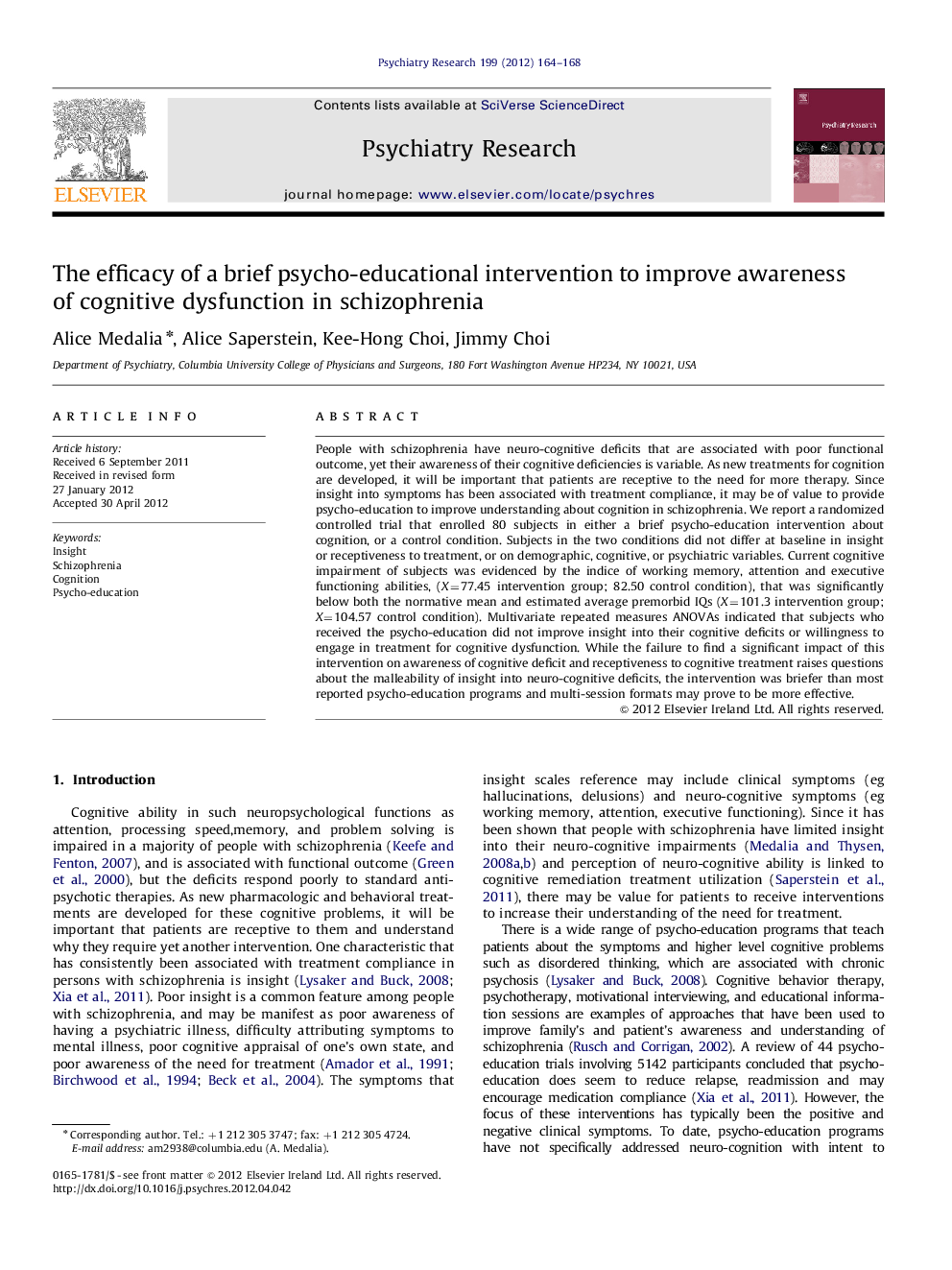| Article ID | Journal | Published Year | Pages | File Type |
|---|---|---|---|---|
| 332517 | Psychiatry Research | 2012 | 5 Pages |
People with schizophrenia have neuro-cognitive deficits that are associated with poor functional outcome, yet their awareness of their cognitive deficiencies is variable. As new treatments for cognition are developed, it will be important that patients are receptive to the need for more therapy. Since insight into symptoms has been associated with treatment compliance, it may be of value to provide psycho-education to improve understanding about cognition in schizophrenia. We report a randomized controlled trial that enrolled 80 subjects in either a brief psycho-education intervention about cognition, or a control condition. Subjects in the two conditions did not differ at baseline in insight or receptiveness to treatment, or on demographic, cognitive, or psychiatric variables. Current cognitive impairment of subjects was evidenced by the indice of working memory, attention and executive functioning abilities, (X=77.45 intervention group; 82.50 control condition), that was significantly below both the normative mean and estimated average premorbid IQs (X=101.3 intervention group; X=104.57 control condition). Multivariate repeated measures ANOVAs indicated that subjects who received the psycho-education did not improve insight into their cognitive deficits or willingness to engage in treatment for cognitive dysfunction. While the failure to find a significant impact of this intervention on awareness of cognitive deficit and receptiveness to cognitive treatment raises questions about the malleability of insight into neuro-cognitive deficits, the intervention was briefer than most reported psycho-education programs and multi-session formats may prove to be more effective.
